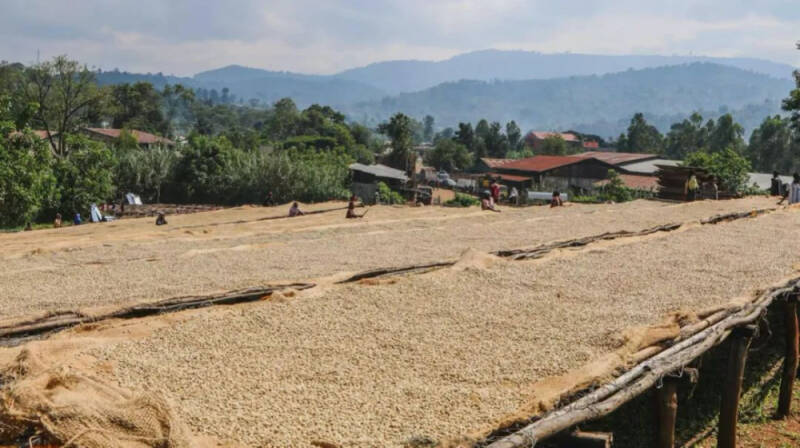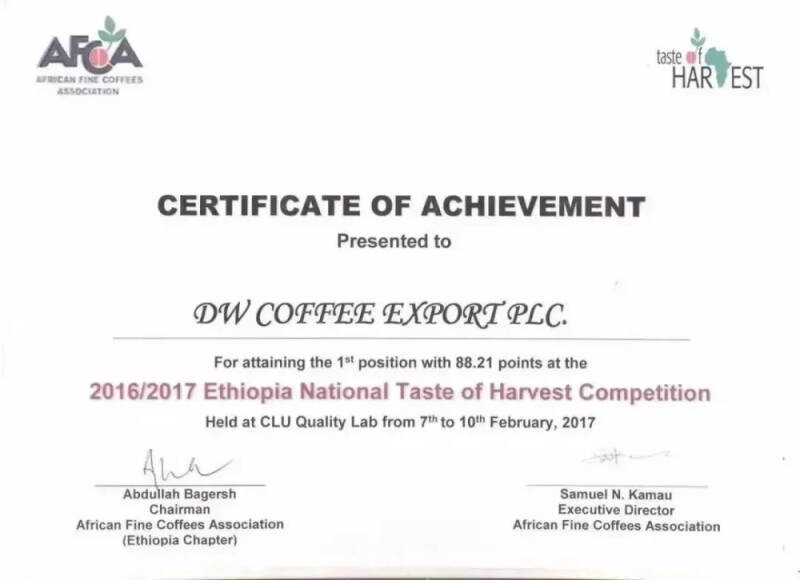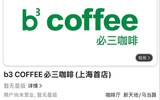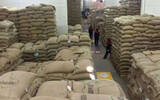What are Ethiopia's "flower queen" coffee beans?
Ethiopia, as a recognized birthplace of coffee, has a long history of coffee cultivation and is the largest coffee producer in Africa. Its coffee is loved by many coffee lovers for its rich fruit flavor and floral flavor.
There are many kinds of coffee beans from Ethiopia in Qianjie Coffee. Among these beans, the most famous is Sakui Coffee beans, which is now Sakui 8.0, that is to say, this is the eighth year of Sakuran. So why on earth is this coffee bean so famous?

The coffee bean became famous in 2017, when Ethiopia was hosting the Harvest season Flavor Competition (Taste of Harvest, or TOH) organized by the African Fine Coffee Association (AFCA). When DW Coffee took part in the competition, it gave away a kind of sun-cured coffee beans (then called "Hambella") from its Buku Abel processing plant. This coffee won the championship of the tanning group for its rich berry aroma and creamy texture.

According to the traceability information at that time, the coffee bean came from the well-known Guji producing area in Ethiopia, and the coffee bean was produced by the Buku Abel processing plant in Hambella, the sub-producing area of Guji, so the name at that time was the name of its sub-producing area.
The reason why this coffee bean is called "Sakuran" is that in the same year, this champion bean was chosen by a raw bean trader in Beijing and launched on the domestic market after naming it "Sakuran", meaning "hundred flowers". In addition, this "Sakuran" was chosen by a contestant to participate in the World Coffee Brewing Competition (China). Although it was only the runner-up, it won a large number of contestants who used Rosa coffee beans, was recognized by the public, and had a high performance-to-price ratio. So it became famous.
After the "Sakui" coffee beans became famous, in order to meet the market demand, DW began to set up five coffee processing stations in the town of Dimtu, the core production area of Humbera, and also began to purchase coffee beans from nearby villages to produce "Sakui" coffee beans. By this time, DW is said to have produced tens of millions of tons of "Sakui" coffee beans every year.
However, coffee is a crop, so the quality of coffee production will be affected by the annual climate, rainfall, fertilization and other factors, and the subtle differences in temperature, humidity and sun conditions in the coffee processing process will also affect the final flavor. As a result, from 2018, even if DW grows and harvests coffee beans in the same area and treats coffee beans in the same processing plant, there will be some differences in flavor with the champion "Sakuran" coffee beans in 2017.
As a result, in order to distinguish between the domestic raw coffee bean traders and the original version, each batch of raw coffee beans will be named after "Huakui X.0". The batch launched in 2018 is called "Sakui 2.0", and the batch launched in 2019 is "Sakui 3.0". By 2024 this year, the batch will be "Huakui 8.0". This year, Qianjie Huakui 8.0 has dried mango, citrus, jackfruit and other tropical fruit flavor, full of juice, round taste, sweet like black tea, rich in layers.
For more information about coffee producing areas, please scan the code directly and follow: coffee comments.
Long press the QR code to follow:
TRANSLATE with
X
English
ArabicHebrewPolishBulgarianHindiPortugueseCatalanHmong DawRomanianChinese SimplifiedHungarianRussianChinese TraditionalIndonesianSlovakCzechItalianSlovenianDanishJapaneseSpanishDutchKlingonSwedishEnglishKoreanThaiEstonianLatvianTurkishFinnishLithuanianUkrainianFrenchMalayUrduGermanMalteseVietnameseGreekNorwegianWelshHaitian CreolePersian
TRANSLATE with
COPY THE URL BELOW
Back
EMBED THE SNIPPET BELOW IN YOUR SITE Bing Webmaster Portal
Back
Important Notice :
前街咖啡 FrontStreet Coffee has moved to new addredd:
FrontStreet Coffee Address: 315,Donghua East Road,GuangZhou
Tel:020 38364473
- Prev

Is it serious to open this coffee shop in Shanghai?!
▲ Click to pay attention| Daily Boutique Coffee Culture Magazine Coffee Workshop Recently, a coffee shop being renovated in a shopping mall in Shanghai has aroused discussion among local citizens. Judging from the pictures posted by netizens, the coffee shop is not currently open to the public, but many passers-by saw the name of the store on the fence advertisement when they passed by, and they were suddenly a little uneasy.
- Next

Loss of billions! Kenya's customs system fails to block coffee exports
According to Kenyan media reports, due to a technical failure in the Kenya Revenue Authority (KRA) Integrated Customs Management System (iCMS), which has not been resolved for five consecutive days, this situation has caused the operation of the Port of Mombasa, Kenya's largest port. Serious impact, resulting in a number of losses.
Related
- What grade does Jamaica Blue Mountain No. 1 coffee belong to and how to drink it better? What is the highest grade of Blue Mountain coffee for coffee aristocrats?
- What are the flavor characteristics of the world-famous coffee Blue Mountain No. 1 Golden Mantelin? What are the characteristics of deep-roasted bitter coffee?
- Can I make coffee a second time in an Italian hand-brewed mocha pot? Why can't coffee be brewed several times like tea leaves?
- Hand-brewed coffee flows with a knife and a tornado. How to brew it? What is the proportion of grinding water and water temperature divided into?
- What is the difference between Indonesian Sumatra Mantinin coffee and gold Mantinin? How to distinguish between real and fake golden Mantelin coffee?
- What does bypass mean in coffee? Why can hand-brewed coffee and water make it better?
- Unexpected! Ruixing Telunsu lattes use a smoothie machine to foam milk?!
- % Arabia's first store in Henan opens into the village?! Netizen: Thought it was P's
- Does an authentic standard mocha coffee recipe use chocolate sauce or powder? Mocha Latte/Dirty Coffee/Salty Mocha Coffee Recipe Share!
- What is the difference between Vietnam egg coffee and Norway egg coffee? Hand-brewed single product coffee filter paper filter cloth filter flat solution!

